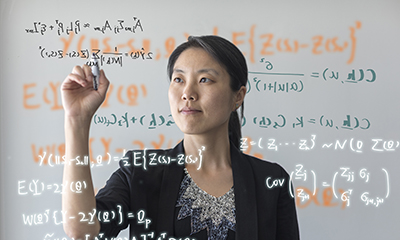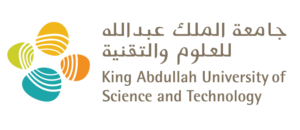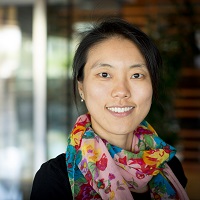Statistics
Making data more accessible
Ying Sun is a multi-award-winning statistician who is inspired by the value of statistics in solving real-world problems.

The rise in awareness of global challenges has led to an increasing need for ways to measure and monitor environmental variables. Now KAUST is celebrating a prestigious award for one of its rising researchers in the area of environmental statistics.
Ying Sun is a multi-award-winning statistician who is inspired by the value of statistics in solving real-world problems. Her statistical modeling of large and complex space-time datasets is used for detecting ozone hot spots and predicting rainfall patterns, and her development of novel data visualization tools helps researchers interpret data more easily and has application from ecology and medicine to biometrics and finance.
Sun’s recent work on computational efficiency, innovative visualization techniques and estimation methodologies was awarded the prestigious 2017 ENVR Early Investigator Award by the American Statistical Association’s Section on Statistics and the Environment at a ceremony in Baltimore in July 2017.
“I was honored to receive this award in recognition of my contributions to environmental statistics,” says Sun, an assistant professor of statistics at KAUST. “And I’m thankful to my colleagues who supported me over the years and for everybody in my research group who have brought energy and enthusiasm to our work at KAUST.”
Sun’s work shines bright internationally. She has previously received best paper awards from the American Statistical Association and the Transportation Research Board National Academies, and last year she received an award rarely given to assistant professors—the 2016 Abdel El-Shaarawi Young Researcher Award from the International Environmetrics Society for her contributions to environmental statistics.
Originally from Shandong in China, Sun attended Tsinghua University in Beijing, where she received a Master’s degree in applied mathematics and then pursued a Ph.D. in statistics at Texas A&M University in the United States.
“I studied applied mathematics and computational science for my degrees but lacked statistics—especially the data-driven aspect, which is my favorite area—so I decided to pursue my doctorate degree in statistics,” she explains. “I joined the Texas A&M University because the statistics program focused on both methodological and practical applications.”
After completing her Ph.D. in 2011, Sun was a postdoctoral researcher in the Research Network for Statistical Methods for Atmospheric and Oceanic Sciences, affiliated with the University of Chicago and the Statistical and Applied Mathematical Sciences Institute, and then became an assistant professor in the Department of Statistics at Ohio State University.
Sun joined KAUST in 2014. “I was only the second statistician to join,” she says. “I’m very grateful to KAUST for the opportunity to build a research group in environmental statistics, which now has eight group members, to develop statistical models and methods for solving important environmental problems.”
At KAUST, her research focuses on developing statistical models and methods for analyzing space-time and functional data—measurements or observations that are functions—with high dimensionality or indexed by space and time, such as daily sea-surface temperatures or wind-speed measurements taken across many locations at different times. As these datasets increase in size and complexity, Sun’s team is also devising new visualization tools that make the data more accessible and informative for researchers.
Sun believes that it’s the unique collaborative learning environment at KAUST that has motivated and inspired her to deliver award-winning research. Although she has achieved widespread respect and international recognition for her work, it’s the success of her team that gives her the greatest satisfaction.
“A real highlight of my career was seeing my first Ph.D. student, Huang Huang, graduate this summer—the first statistician to graduate from KAUST,” she says.
Sun’s contribution to KAUST’s reputation as a center of excellence for science and technology has been acknowledged by the Dean of CEMSE, Mootaz Elnozahy: “The award is testament to the great esteem that the international research community in environmental statistics holds for Ying Sun’s research at KAUST,” he says. “I hope that, in addition to the honor of receiving this prestigious award, Sun’s research will help increase the visibility of our collective effort at KAUST in environmental research.”
References
- | article
You might also like

Statistics
Checking your assumptions

Statistics
Internet searches offer early warnings of disease outbreaks

Statistics
Joining the dots for better health surveillance

Statistics
Easing the generation and storage of climate data

Statistics
A high-resolution boost for global climate modeling

Applied Mathematics and Computational Sciences
Finer forecasting to improve public health planning

Bioengineering
Shuffling the deck for privacy

Bioengineering




